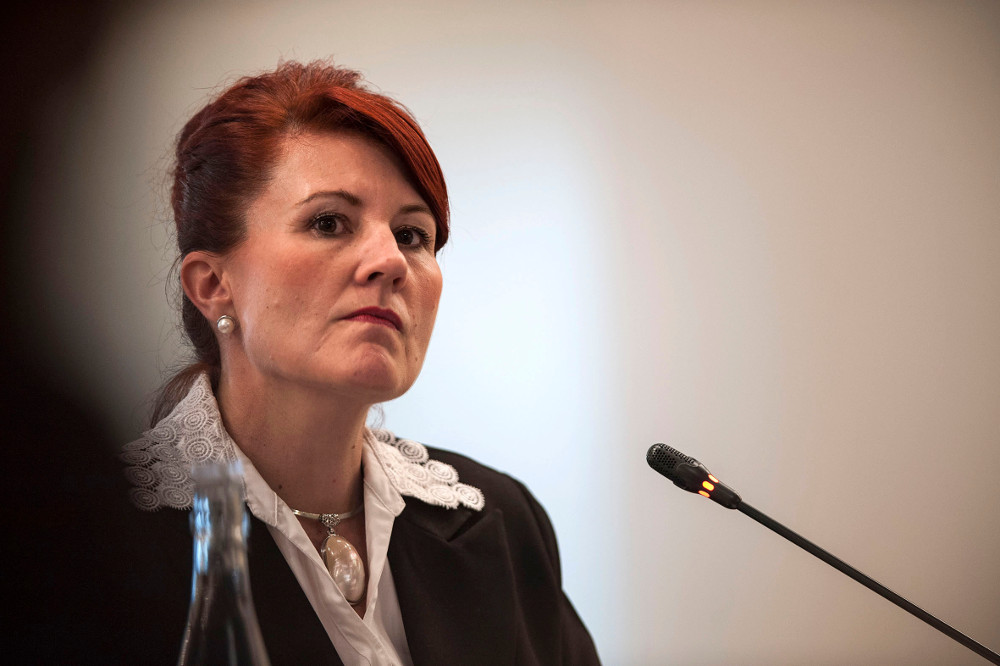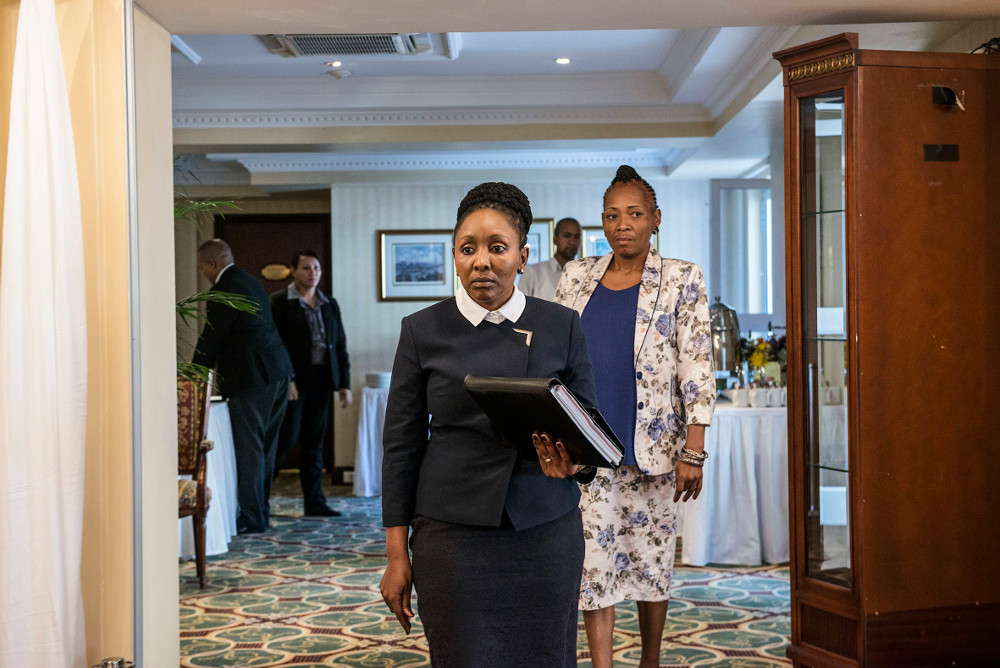The interview panel included Mandisa Maya
NEWS ANALYSIS
In an often cacophonous, emotional South Africa, questions of race, class and privilege usually expose an individual’s insecurities and prejudices – and a fractious society pumping up the volume of blame for a failing reconciliation project.
These are the dervish swirls of a young democracy, of a society grasping upwards towards enlightenment and solutions.
Yet it is the dance’s underlying asceticism that allows for the clear answers we crave: a living frugality found in structural poverty that leads to grassroots mobilisation and questioning of power, or the quieter rumination by progressive judges, politicians, activists and thinkers in an age of knee-jerk social media noise.
The Judicial Service Commission’s (JSC) interviews with prospective judges in Cape Town this week appeared such a space of serenity, of intellectual rigour and sociopolitical awareness: one where solutions were being found.
At the time of the paper going to press on Thursday, the commission had nominated nine female candidates to fill vacancies on the Gauteng, Northern Cape, Free State and Labour Court Benches.
The names of four female candidates – advocate Raylene Keightley, the Labour Court’s Judge Annali Basson and attorneys Lebogang Modiba and Nelisa Mali – were submitted to President Jacob Zuma for the six judicial vacancies in the high court in Gauteng. Advocate Willem van der Linde SC and regional magistrate Thifhelimbilu Mudau filled the other two spots.
There is a constitutional imperative that the judiciary should broadly reflect the race and gender demographics of the country. Prior to this round of interviews, only 34% of the judges on the Gauteng Bench were women – well below the national figure of more than 50%.

Advocate Celeste Reinders during her interview by the panel. (David Harrison, M&G)
Judge President Dunstan Mlambo, of the Gauteng division of the high court, proudly told the Mail & Guardian that 13 female judges, compared with six male judges, had been appointed during his three-year stewardship of the division.
Advocate Sharon Erasmus and magistrate Mpho Mamosebo were nominated for the Northern Cape vacancies, attorney Nobulawo Mbhele and advocate Celeste Reinders for the Free State high court positions, and advocate Connie Prinsloo and Commission for Conciliation, Mediation and Arbitration commissioner Tshidiso Tlhotlhalemaje were nominated to serve as Labour Court judges.
White privilege and how it has entrenched the racial imbalances in the legal community, including the judiciary, have been examined often at the JSC, sometimes with emotive superficiality and at other times with personalised heat. The commission is composed of politicians from the different parties represented in Parliament, as well as lawyers, judges and legal academics, a combination that can sometimes be as fractious as the society it represents.
Yet in this round of interviews, privilege was managed with a sensitive delicacy that exposed more than it obfuscated. This was in no small part attributable to the opening line of questioning by Deputy Chief Justice Dikgang Moseneke.
Moseneke was chairing the commission in place of Chief Justice Mogoeng Mogoeng, who was travelling abroad. Delving into candidates’ personal history, including their childhoods and experiences of basic and tertiary education, Moseneke humanised their disparate backgrounds.

Attorney Lebogang Modiba arriving for questioning. (David Harrison, M&G)
His was a gentle approach to exposing privilege and its structural legacy that, while obviating any heated emotions during follow-up interviews, allowed for a more profound understanding of each candidate – whether it was making acute observations about white males benefiting from the best apartheid schools, universities and networks of influence or lending understanding to candidates such as Modiba who, despite growing up in poverty in Alexandra as a “half-orphan” following the death of her mother when she was three, went on to obtain an LLM and a master’s in public administration from Harvard University.
Modiba would escape her hole-ridden, “rat-infested” home with no electricity, especially in winter, to the library, where she “secluded myself a lot and buried myself in books”. She attributed this to being the “secret to escaping poverty”.
Moseneke also added a sharper edge – through his own questioning and the tight rein he held on proceedings – to the usual themes the commission traverses during interviews, especially the doctrine of separation of powers, judicial independence and accountability and how judges navigate their personal subjectivity while maintaining professional objectivity: “How best do we disabuse ourselves of that … silent voice in our heads?” he asked advocate Rean Strydom SC, who was being interviewed for a position on the Gauteng Bench.
One commissioner attributed the poetics and substance of many of the interviews this week to Moseneke’s “intellectual charisma”. Another noted that the deputy chief justice’s gravitas and demeanour were infectious.
With Supreme Court of Appeal president Lex Mpati also unavailable, his deputy, Mandisa Maya, provided an equally incisive and smart addition to the commission with her interventions, which added nuance to how the commission understood candidates.
Reinders had mentioned in passing a “tongue-in-cheek” column she had written for a legal magazine about being a woman at the Free State Bar. Maya later sought clarity on the content of the piece, expressing concern that the advocate had dealt lightly with the serious topic of patriarchy in the legal community. Reinders was allowed the opportunity to clarify that, although she had been humorous in her approach, she had not shied away from the difficulties that female lawyers – especially those with children – face in the male-dominated sector.
By cutting through to the intimate and the personal with a delicate intellectualism, this week’s JSC interviews explored South Africa’s – and the legal fraternity’s – big questions with a profound grace.